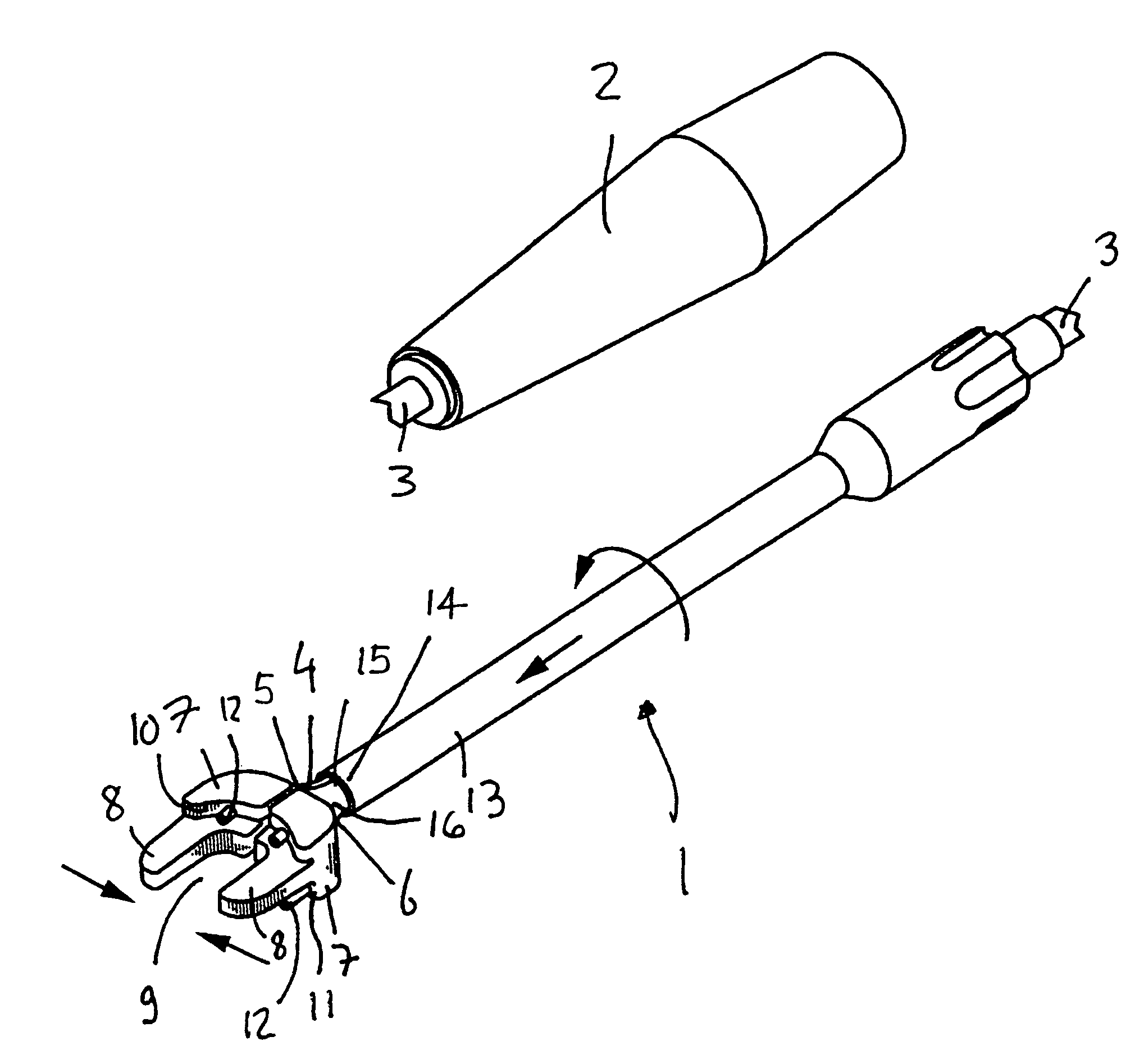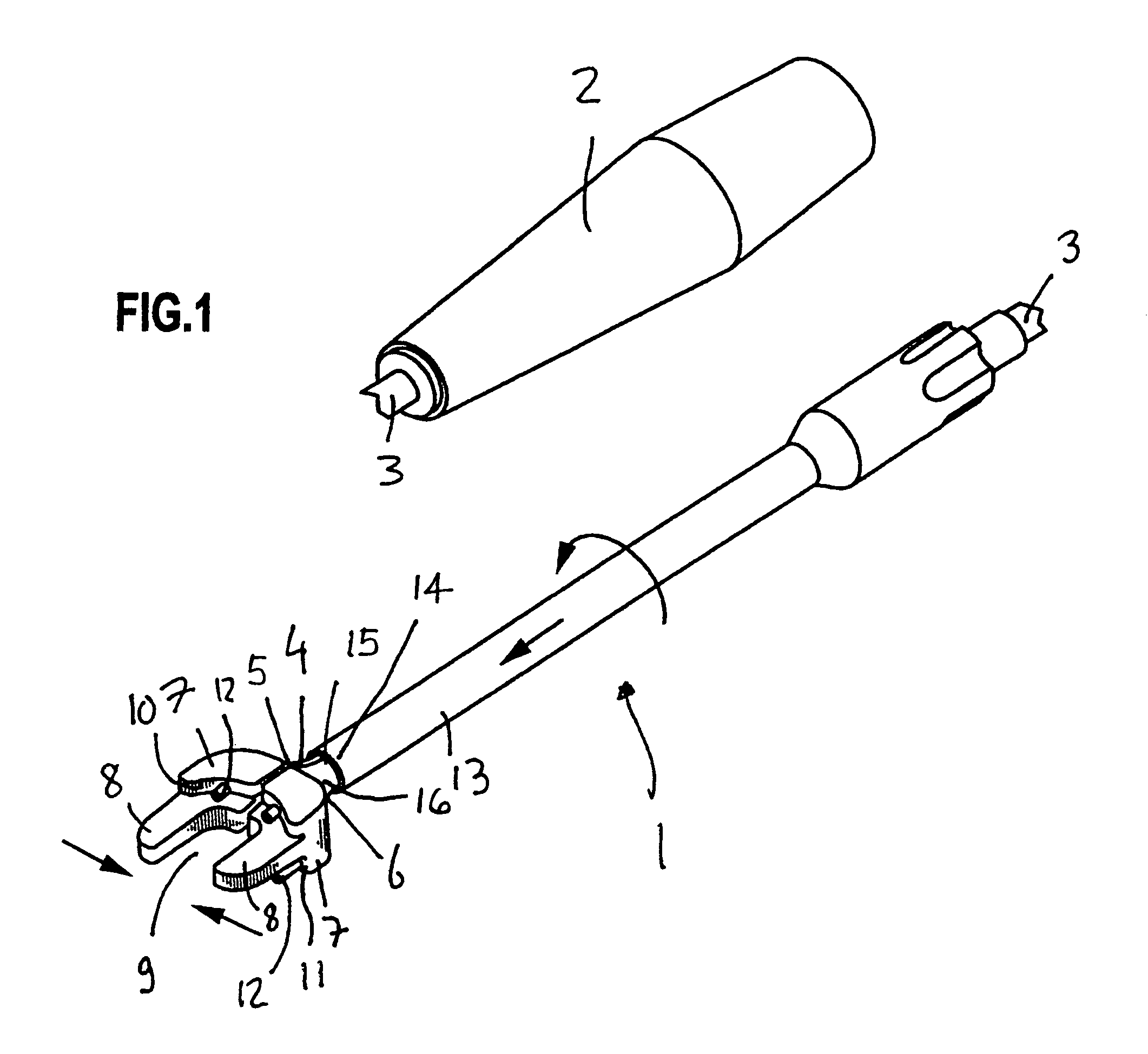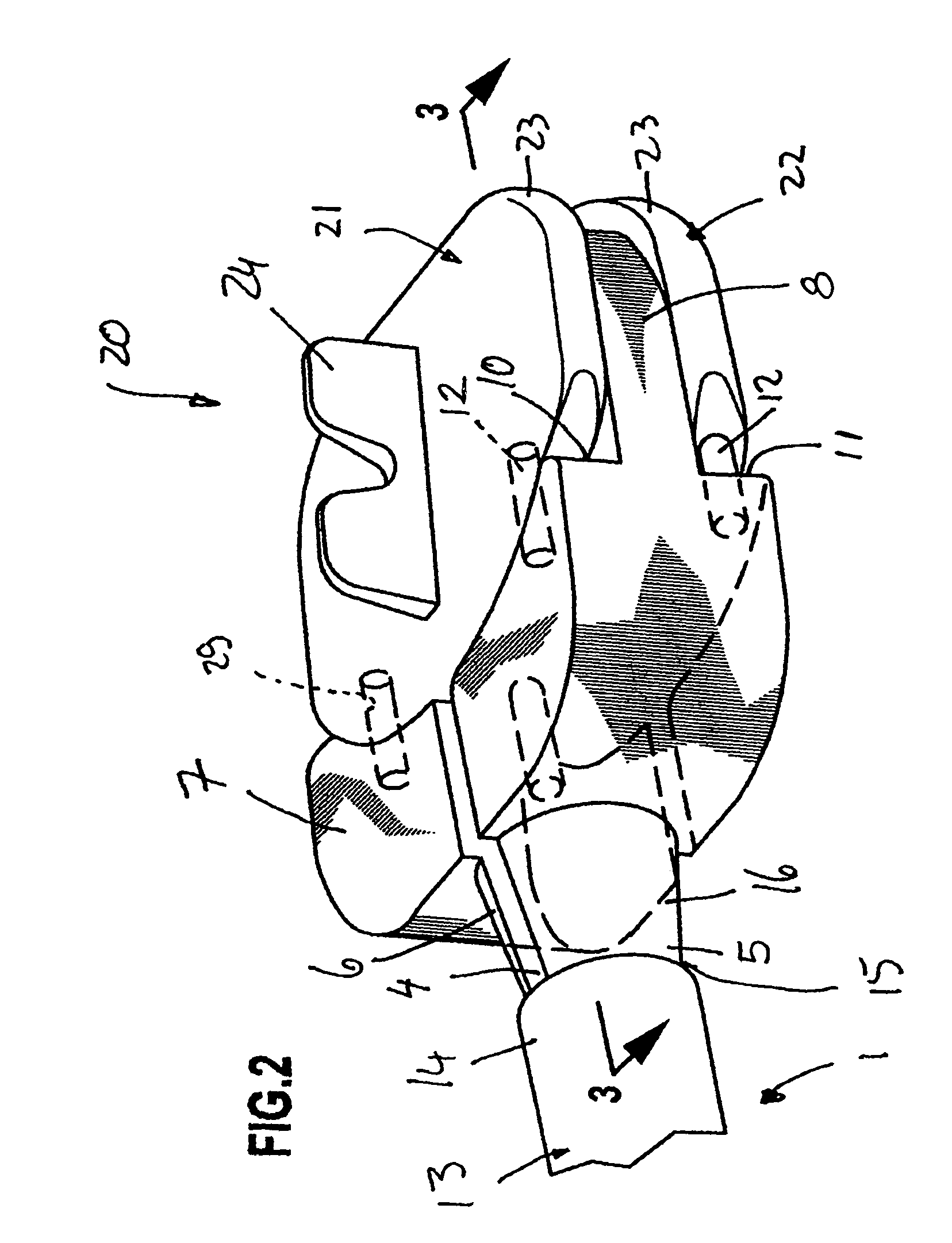Surgical instrument for handling an implant
a surgical instrument and implant technology, applied in the field of inserting instruments, can solve the problems of shock on the implant, high risk, damage to the joint surface,
- Summary
- Abstract
- Description
- Claims
- Application Information
AI Technical Summary
Benefits of technology
Problems solved by technology
Method used
Image
Examples
Embodiment Construction
[0022]Although the invention is illustrated and described herein with reference to specific embodiments, the invention is not intended to be limited to the details shown. Rather, various modifications may be made in the details within the scope and range of equivalents of the claims and without departing from the invention.
[0023]The surgical instrument 1 shown in the drawings comprises a handle 2 with a bar 3 held thereon, which is divided at its end located opposite the handle 2 by a longitudinal slot 4 into two parallel arms 5, 6, which can be elastically pivoted against each other or apart from one another. The two arms 5, 6 have the same design, and only one part will therefore be described in detail below. At its end, the arm carries a clamping jaw 7, which may be made in one piece with the arm and is broader and higher than the arm. A substantially plate-shaped spacer member 8 is arranged at each clamping jaw 7, the spacer member 8 extending in the longitudinal direction of th...
PUM
 Login to View More
Login to View More Abstract
Description
Claims
Application Information
 Login to View More
Login to View More - R&D
- Intellectual Property
- Life Sciences
- Materials
- Tech Scout
- Unparalleled Data Quality
- Higher Quality Content
- 60% Fewer Hallucinations
Browse by: Latest US Patents, China's latest patents, Technical Efficacy Thesaurus, Application Domain, Technology Topic, Popular Technical Reports.
© 2025 PatSnap. All rights reserved.Legal|Privacy policy|Modern Slavery Act Transparency Statement|Sitemap|About US| Contact US: help@patsnap.com



